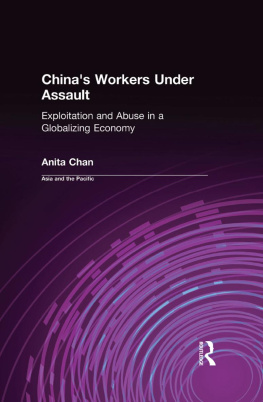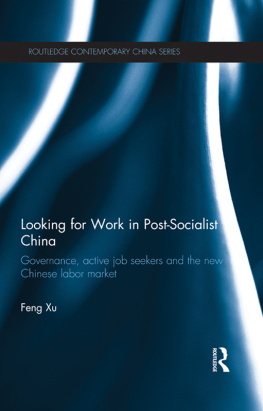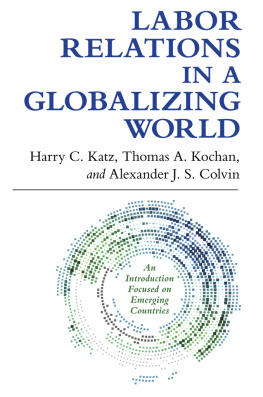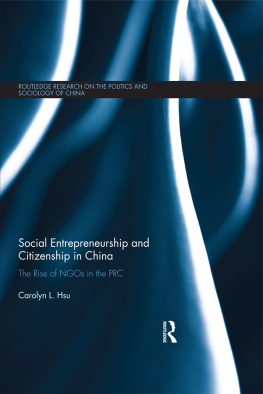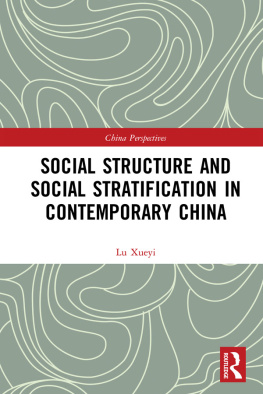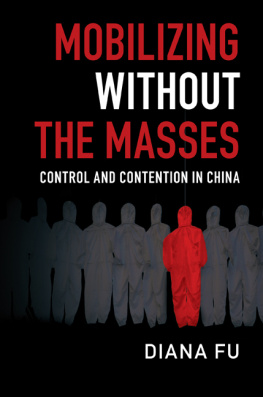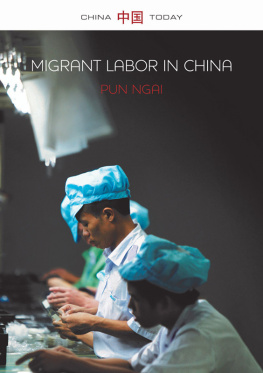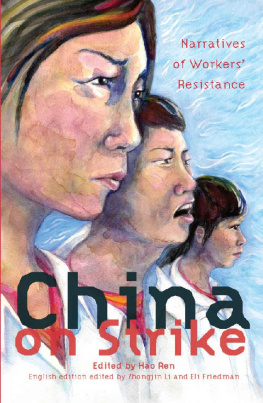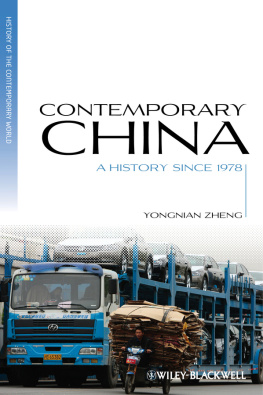Doing Labor Activism in South China
How did labor NGOs come into existence in contemporary China? How do labor activists act or not act when the limits of state tolerance are unclear? With a focus on labor NGOs in South China and Western funding agencies, this book sets out to address these questions by investigating the dynamics of state control in post-socialist China since the 1970s, in which rapid economic and social transformations have cultivated an environment of uncertainty.
Taking uncertainty as an analytical space, productive of emergent practices and discourses, this book draws on original fieldwork and interviews to study the lived experiences of different actors throughout the labor NGO community, the foreign donors trying to bring about change, and the networks of social relationships being strategically reconfigured.
Doing Labor Activism in South China offers an ethnography of the Chinese state that reveals an intimate and complicit modality of self-governing, demonstrating how neoliberal ideas are at once represented by international development and deflected in grassroots development. It will be useful to students and scholars of Social Anthropology and Urban Ethnography, as well as Political Science and Chinese Studies more generally.
Darcy Pan is a social anthropologist whose research focuses on the state, labor, infrastructure, area studies specific to China, technology and urban development. She is a postdoctoral research fellow in the department of Social Anthropology at Stockholm University, Sweden. Her most recent work has been published in the Handbook of Dissident and Protest in China (2019).
Routledge Contemporary China Series
208 Ecology and Chinese-Language Ecocinema
Reimagining a Field
Edited by Sheldon H. Lu and Haomin Gong
209 Civilian Participants in the Cultural Revolution
Being Vulnerable and Being Responsible
Francis K.T. Mok
210 Hong Kongs New Identity Politics
Longing for the Local in the Shadow of China
Iam-chong Ip
211 Youth Economy, Crisis, and Reinvention in Twenty-First-Century China
Morning Sun in the Tiny Times
Hui Faye Xiao
212 The Chinese Economy and its Challenges
Transformation of a Rising Economic Power
Charles C.L. Kwong
213 Keywords in Queer Sinophone Studies
Edited by Howard Chiang and Alvin K. Wong
214 Macau 20 Years after the Handover
Changes and Challenges under One Country, Two Systems
Edited by Meng U Ieong
215 Doing Labor Activism in South China
The Complicity of Uncertainty
Darcy Pan
For more information about this series, please visit: https://www.routledge.com/Routledge-Contemporary-China-Series/book-series/SE0768
First published 2020
by Routledge
2 Park Square, Milton Park, Abingdon, Oxon OX14 4RN
and by Routledge
52 Vanderbilt Avenue, New York, NY 10017
Routledge is an imprint of the Taylor & Francis Group, an informa business
2020 Darcy Pan
The right of Darcy Pan to be identified as author of this work has been asserted by her in accordance with sections 77 and 78 of the Copyright, Designs and Patents Act 1988.
All rights reserved. No part of this book may be reprinted or reproduced or utilised in any form or by any electronic, mechanical, or other means, now known or hereafter invented, including photocopying and recording, or in any information storage or retrieval system, without permission in writing from the publishers.
Trademark notice: Product or corporate names may be trademarks or registered trademarks, and are used only for identification and explanation without intent to infringe.
British Library Cataloguing-in-Publication Data
A catalogue record for this book is available from the British Library
Library of Congress Cataloging-in-Publication Data
Names: Pan, Darcy, author.
Title: Doing labor activism in South China : the complicity of uncertainty / Darcy Pan.
Description: Abingdon, Oxon ; New York, NY : Routledge, 2020. | Series: Routledge contemporary China series | Includes bibliographical references and index.
Identifiers: LCCN 2020007721 (print) | LCCN 2020007722 (ebook) | ISBN 9780367406752 (hardback) | ISBN 9780367810092 (ebook)
Subjects: LCSH: Labor movementChina. | Labor unionsChina. |
Non-governmental organizationsChina. | ChinaEconomic policy1949 | ChinaEconomic conditions1949
Classification: LCC HD8734 .P35 2020 (print) | LCC HD8734 (ebook) | DDC 331.8809512dc23
LC record available at https://lccn.loc.gov/2020007721
LC ebook record available at https://lccn.loc.gov/2020007722
ISBN: 978-0-367-40675-2 (hbk)
ISBN: 978-0-367-81009-2 (ebk)
Typeset in Times New Roman
by codeMantra
This book is based on my PhD dissertation, which was completed in 2016 in the Department of Social Anthropology at Stockholm University. The research on which my PhD study is based was generously funded by grants from Forum for Asian Studies, Helge Ax:son Johnson Foundation, the Swedish Society for Anthropology and Geography, and the Department of Social Anthropology, Stockholm University. They funded the different stages of my fieldwork in 20122013. Scholarship from the Sweden-America Foundation gave me the opportunity to spend one year in the Department of Anthropology at Yale University from 2014 to 2015 to focus on writing my dissertation.
In China and Hong Kong, I am truly grateful to all the people whom I met and spent time with, many of whom have become good friends. Nearly all of them have been given pseudonyms in this study. I hope that the perspective I offer will in some way repay their interest and kindness. I thank Anthony Spires at the University of Melbourne for inspiring discussions at the early stage of my fieldwork.
In Taiwan, I am grateful for Chih-jou Jay Chen at Academia Sinica and Hsing-chung Wang at Soochow University for helping me make contacts in Guangzhou at the early stage of my fieldwork.
In the Department of Social Anthropology at Stockholm University, Johan Lindquist has been my mentor since I began my graduate education. He has read and commented on several versions of this study and continuously shown confidence in me and this project, and pushed me to broaden and deepen my understanding of and engagement with contemporary issues in anthropology and social theory. I cannot express enough my gratitude to him for being a guide and an interlocutor for so many years. As my second advisor, Anette Nyqvist has offered her unwavering support and has had faith in me and has given me invaluable comments as I wrote and revised the study. Along with these people, I have been sustained by conversations with Ulf Hannerz, Helena Wulff, Shahram Khosravi, Mark Graham, Renita Thedvall, Paula Uimonen, and Dolly Kikon. I am also indebted to the graduate students and the administrative staff at the department. I thank Hege Hyer Leivestad, Peter Skoglund, and Lina Lorentz for guiding and helping me with the practicalities.
I was affiliated with the Asia Research Institute at National University of Singapore during the summer of 2010. I thank Brenda Yeoh for the invitation which allowed me to conduct some preliminary fieldwork in the region. I am also grateful for Melody Lu, Lai An-Eng, Lan Anh, Cheryll Alipio, Shu-yi Pearl Wang, and Mika Toyota for inspiring conversations and support. I would also like to extend my gratitude to all the administrative staff at the Asia Research Institute for making my visit so comfortable and memorable. During the winter of 2010, I had the opportunity to do some coursework at the Institute of Social and Cultural Anthropology at University of Oxford. I am grateful for Xiang Biaos invitation and letting me be part of the stimulating research environment.


